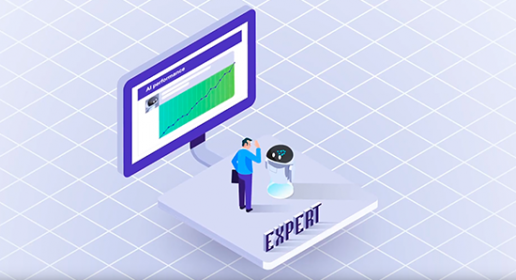“Artificial Intelligence, Machine Learning and the Future of Telecoms”: a New Survey Report about the Future of AI in the Telecom Industry
- Published
- 4 min reading

Telecom operators are trying to make their networks ever more dynamic and responsive to the different demands that they face in terms of customers and internal operations. Artificial intelligence and machine learning might be able to provide them with what they need in order to gain advantage and thrive on the ever-changing telecommunications market. But the future of these technologies depends on operators, and on how they decide to tackle the challenge of implementing AI/ML.
AI in telecommunications – the state of technology for 2020
In order to better understand the place of AI/ML in telecoms, we decided to compile a report together with Mobile World Live. As these technologies seem to offer a lot of new possibilities, we wanted to know how enthusiastic operators really are about AI/ML, how are they utilizing them, the extent of their spending on AI applications, and the biggest issues with AI/ML-driven technologies. The report consists of four main subjects:
- Operators’ AI and machine learning strategies
- The effects of AI/ML on networks
- Operators’ AI technology preferences
- Problems with implementing artificial intelligence.
Key AI report findings
What made us most excited about the future of AI in the telecom industry, is that operators believe strongly believe in this technology, and most of them have already implemented it in some way or another.
“An overwhelming majority of operators believe AI and ML deliver a competitive advantage. In total, almost 90% of operators said that using AI/ML delivers a competitive advantage today or will do so in future. Additionally, 58.8% of CSPs surveyed have either implemented AI or ML solutions on a large scale, or are doing so.”
Almost 60% of surveyed operators claimed to have applied AI/ML-driven technologies in their operations. With the technology still being new, and relatively expensive, this is a very high take-up rate. The study also showed that most operators believe that artificial intelligence and machine learning can help them most with improving customer experience and their business security when it comes to fraudulent activities.
The biggest problem with deploying the technology is the skills gap, followed by the high costs associated with AI/ML implementation.
AI/ML-driven technologies in the eyes of telecoms
This report was about a reality check. From our work with AI/ML-driven technologies, and as we are always following the trends, we knew that these technologies can be very beneficial for telecoms. But theory is not always reflected in practice. That’s why we wanted to see how the technology “acts” in real life, within various telecommunication environments.
If you’d like to learn about what different telecommunications operators around the world think about AI, and its potential for telecoms, download the report “Artificial Intelligence, Machine Learning and the Future of Telecoms”.











